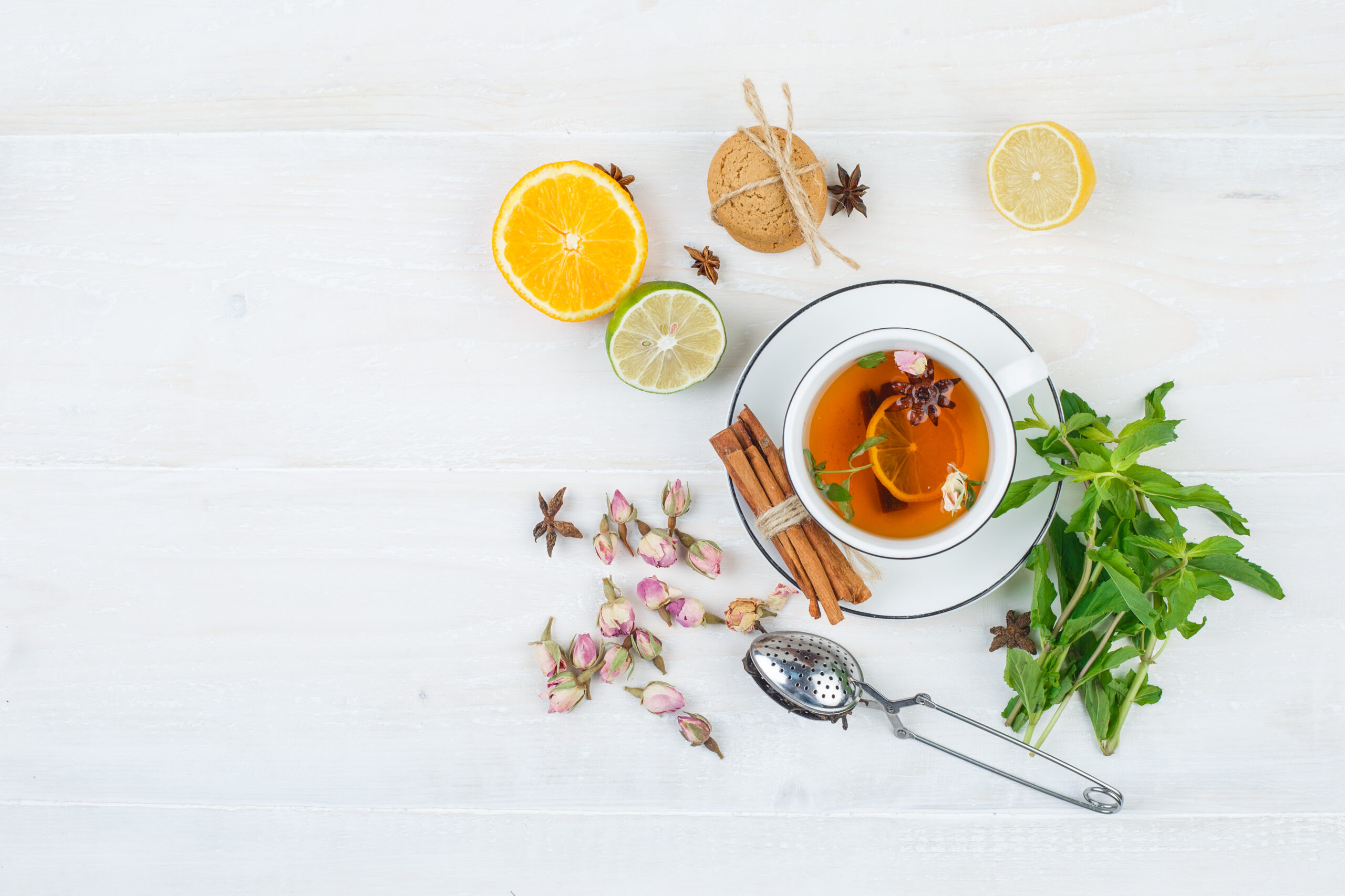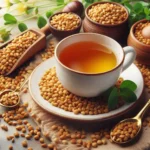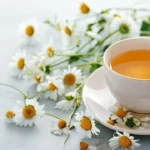Herbal Tea Benefits apply across the world and cultures. It is a caffeine free drink with multitude of benefits.
Herbal tea, also known as tisane, is a hot beverage brewed from a variety of plant parts like dried flowers, leaves, fruits, spices, or even roots. Unlike traditional tea, which comes from the Camellia sinensis plant, herbal tea is caffeine-free and boasts a wide range of flavors and potential health benefits. Popular choices include calming chamomile, soothing peppermint, and warming ginger, each offering unique taste and aroma profiles. Whether you seek relaxation, digestion aid, or simply a delicious warm drink, herbal tea offers a comforting and natural way to enjoy the goodness of plants.
Herbal Tea benefits primarily lies with the material used to prepare the tea. In most cases, a simple infusion of a herb is prepared in hot water and consumed without sugar or milk additives. This infusion contains numerous health benefits. While there are lot of different herbs prepared in numerous ways, it is beyond the scope of this article to list all kinds of herbs.
Still, we have listed 10 main Herbal Tea benefits while also mentioning the most common herbs and their benefits. So take your time and read on the benefits below for heathier you!
10 Herbal Tea Benefits
- Rich in Antioxidants: Many herbal teas contain high levels of antioxidants, which can help combat free radicals and reduce the risk of chronic diseases like cancer and heart disease. 1
- Boosts Immune System: Certain herbal teas, like ginger and echinacea, may enhance immune function and help fight off infections. 2
- Aids Digestion: Peppermint, ginger, and fennel teas are known for their digestive properties, easing nausea, bloating, and indigestion.
- Promotes Relaxation and Sleep: Calming herbs like chamomile and lavender can induce relaxation and improve sleep quality.
- Supports Heart Health: Hibiscus tea, for example, may help lower blood pressure and improve cholesterol levels, contributing to heart health.
- Reduces Inflammation: Herbs like turmeric and ginger possess anti-inflammatory properties, potentially alleviating pain and inflammation associated with conditions like arthritis.
- Improves Brain Function: Certain herbal teas, like rosemary and sage, may enhance cognitive function and memory.
- Hydration with Flavor: Herbal teas can be a delicious and healthy alternative to sugary drinks, contributing to daily fluid intake.
- May Aid Weight Management: Some herbal teas, like green tea, may modestly boost metabolism and promote fat burning.
- Cost-Effective and Accessible: Herbal teas are generally affordable and readily available, making them a convenient way to incorporate additional health benefits into your routine
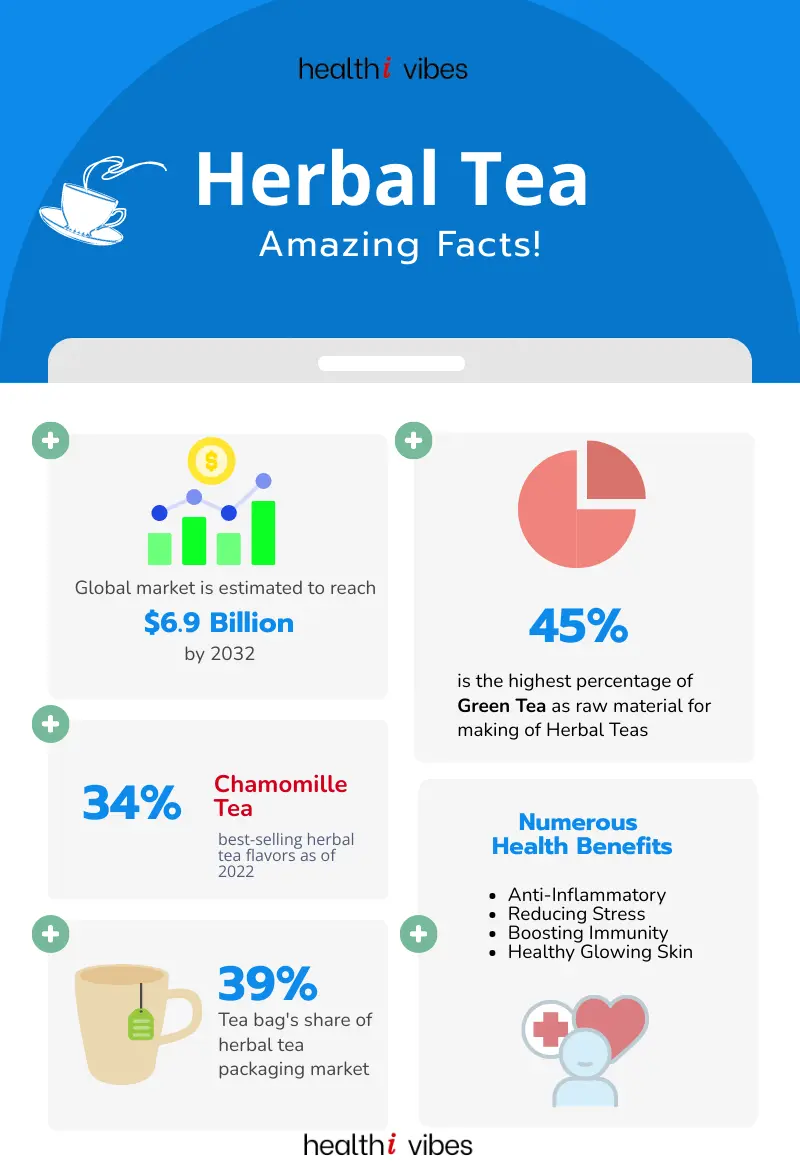
Popular Herbal Teas and Their Benefits.
Many people fond of including herbal tea in their daily health management diet, try out different herbs and recipes to brew their favorite cup of refreshing drink. While most herbal teas are prepared with single ingredient infusion, few herbal teas are prepared by combination of multiple herbs. However, it all depends of the taste the drinker and it is always refreshing to try out new flavors and varieties. Here we list most popular herbal teas and their benefits:
Butterfly Pea Flower Tea
Commonly known as “Blue tea”, butterfly pea flower tea is rich in antioxidants and linked to several health benefits, including weight loss, blood sugar control, and hair and skin health.
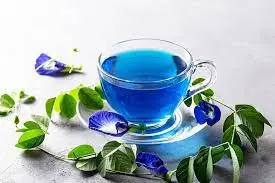
Lavender Tea:
Lavender tea is known for its calming properties. It may help reduce anxiety and improve sleep quality.

Fenugreek Tea
Fenugreek tea may help regulate blood sugar levels and improve insulin sensitivity in diabetes1.
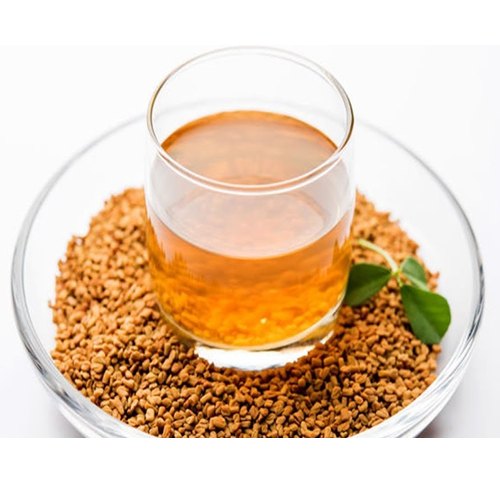
Stinging Nettle Tea
Stinging nettle tea is rich in vitamins and minerals. It may have anti-inflammatory effects and support urinary health1.
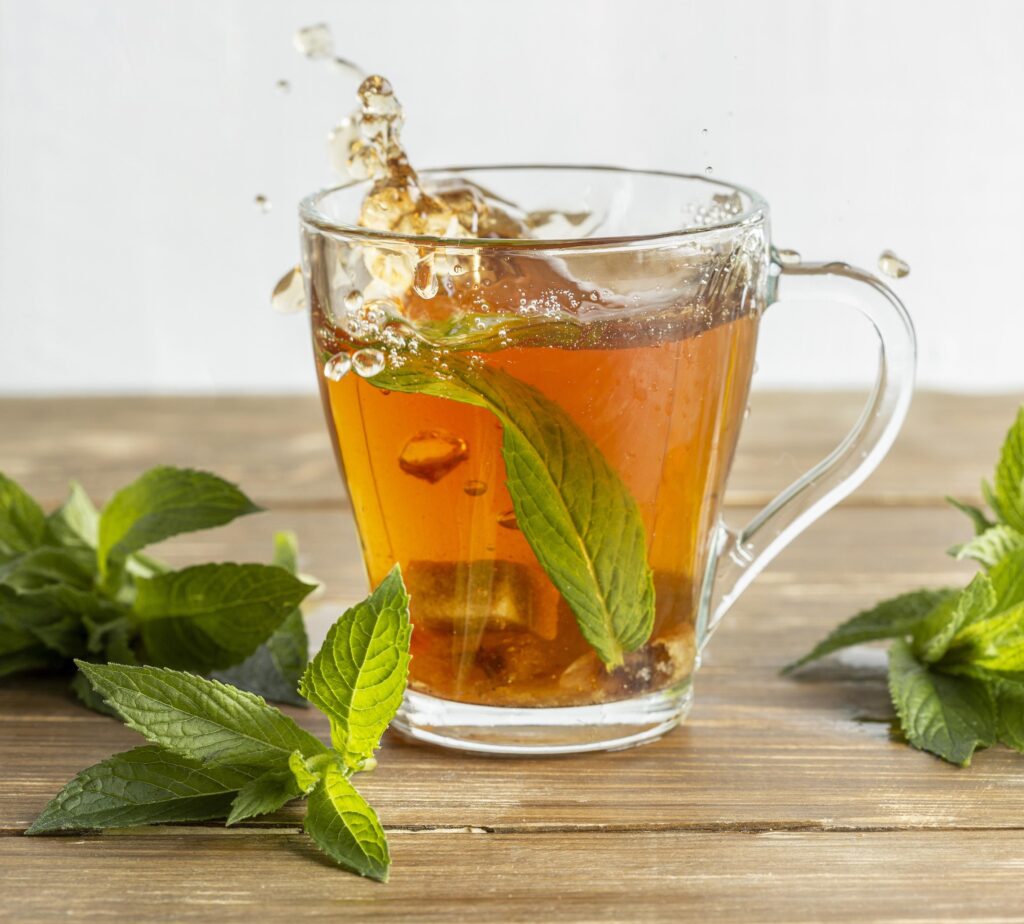
Spearmint Tea
Spearmint tea is refreshing and may aid digestion. It also has potential anti-androgenic effects in polycystic ovary syndrome (PCOS)1.
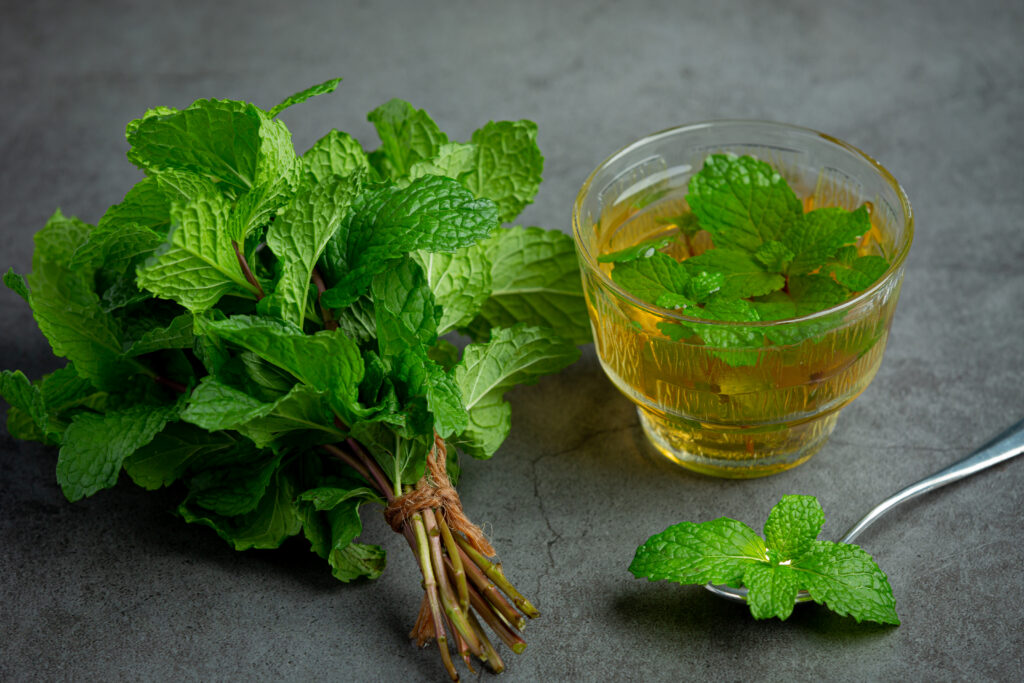
Hibiscus Tea
Hibiscus tea made from dried Rose leaves, is rich in antioxidants and may help lower blood pressure and improve heart health
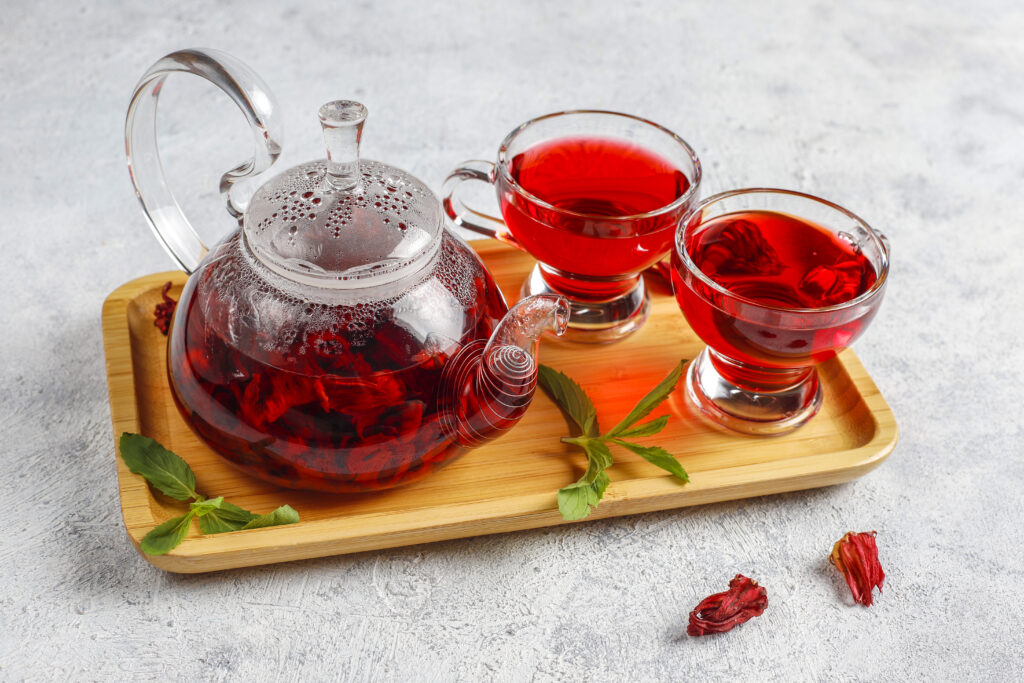
Yerba Maté:
Yerba maté is energizing and contains caffeine. It may enhance mental alertness and boost metabolism1.

Takeaway
In conclusion, the world of herbal teas offers a vast number of benefits for both mind and body. From soothing chamomile to peppermint, each variety holds its own unique blend of nutrients and healing properties. By incorporating herbal teas into your daily routine, you can embark on a journey toward improved health and well-being.
Whether you’re seeking relief from stress, a boost to your immune system, or simply a moment of tranquility in a busy day, herbal teas provide a natural and delicious solution. Furthermore, their versatility allows for endless experimentation and customization, ensuring that there’s a perfect blend for every palate and purpose.
As we’ve explored, the antioxidants, vitamins, and minerals found in herbal teas contribute to a myriad of health benefits, from promoting better digestion to enhancing sleep quality. Moreover, the ritual of preparing and savoring a cup of herbal tea offers a mindful pause in our fast-paced lives, allowing us to reconnect with ourselves and find moments of peace amidst the chaos.
As you continue on your herbal tea journey, remember to source high-quality ingredients, experiment with different flavors, and listen to your body’s cues. Whether enjoyed alone as a moment of self-care or shared with loved ones as a bonding experience, herbal teas have the power to nourish not only our bodies but also our spirits. So, next time you reach for a comforting beverage, consider opting for a cup of herbal tea and savor theholistic benefits it has to offer. You might just be surprised at how a simple change like incorporating herbal tea into your day can have a positive impact on your overall health and happiness.
Cheers to your health and happiness, one soothing sip at a time!
Note:
The above mentioned information is meant for educational purpose only. Remember, consulting with a healthcare professional before drastically altering your diet or using herbal remedies for specific ailments is always advisable. It is also advised to consume small quantities of herbal tea initially to observe any unwanted effect on your body.
References
- “Green tea, black tea, and their polyphenols: Health effects and mechanisms of action” published in Journal of the American Chemical Society (https://pubs.acs.org/doi/10.1021/jf010759%2B)
- “Echinacea purpurea for preventing and treating the common cold” published in Cochrane Database of Systematic Reviews (https://www.cochrane.org/CD000530/ARI_echinacea-for-preventing-and-treating-the-common-cold)
- “Efficacy of peppermint oil in the treatment of irritable bowel syndrome: a meta-analysis” published in American Journal of Gastroenterology (https://pubmed.ncbi.nlm.nih.gov/24100754/)
- “A review of the literature on the clinical effectiveness and safety of chamomile in the treatment of anxiety” published in Complementary Therapies in Medicine https://www.ncbi.nlm.nih.gov/pmc/articles/PMC2995283/)
- “Cardiovascular effects of hibiscus tea (Hibiscus sabdariffa L.): A review” published in Food & Nutrition Research (https://www.ncbi.nlm.nih.gov/pmc/articles/PMC9086798/)
- “The effectiveness and safety of turmeric and curcumin in the treatment of inflammatory conditions” published in Nutrition Journal (https://pubmed.ncbi.nlm.nih.gov/12676044/)
- “The effect of sage (Salvia officinalis) on cognitive function in older adults with Alzheimer’s disease: a double-blind, placebo-controlled trial” published in Journal of Psychopharmacology (https://www.ncbi.nlm.nih.gov/pmc/articles/PMC9966473/)
- “Dietary guidelines for Americans, 2020-2025” published in U.S. Department of Agriculture (https://www.dietaryguidelines.gov/sites/default/files/2020-12/Dietary_Guidelines_for_Americans_2020-2025.pdf)
- “Effects of green tea on weight loss and waist circumference: a meta-analysis” published in International Journal of Obesity (https://pubmed.ncbi.nlm.nih.gov/19597519/

